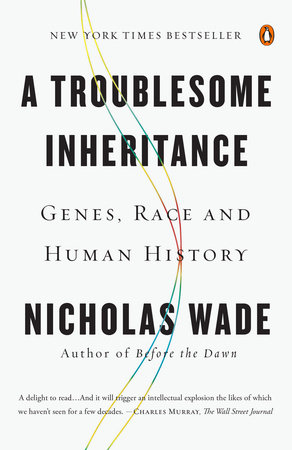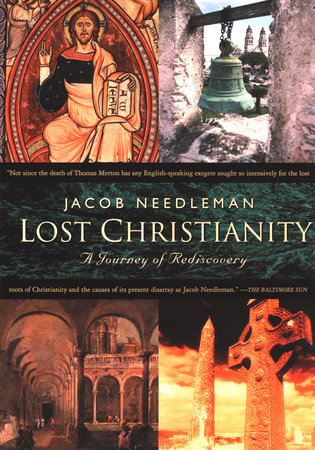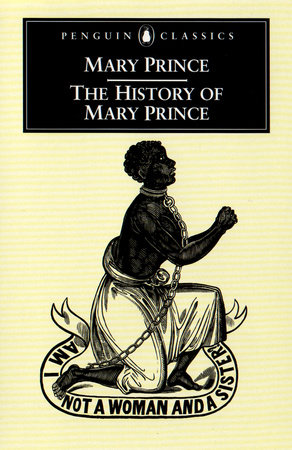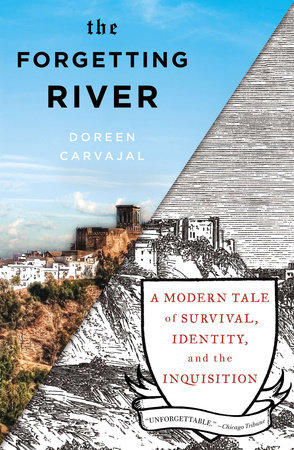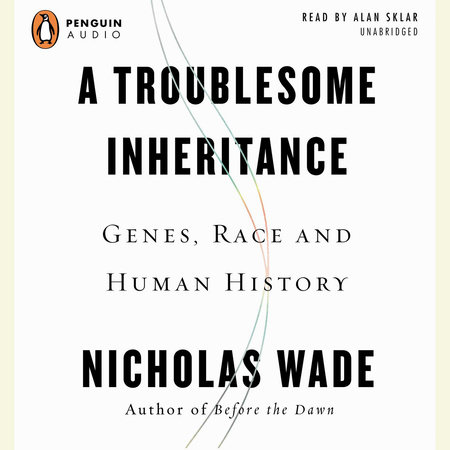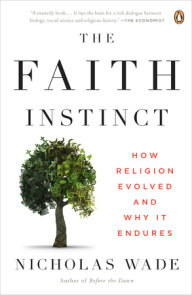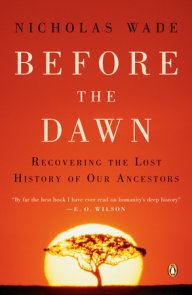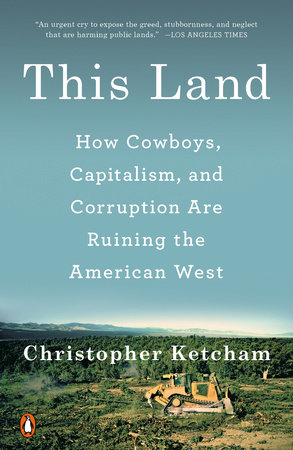Author Q&A
You’ve mentioned that A Troublesome Inheritance grew out of your previous work Before the Dawn: Recovering the Lost History of Our Ancestors. Could you elaborate?
Before the Dawn looks at the last 50,000 years of human history, a period in which the ancestral population differentiated into today’s races. Since 2005, when the book was published, much new information about this process of differentiation has emerged from the human genome. Biologists were doing little to put the information in a larger context for the general reader. So it seemed a good subject for another book.
Even before you began writing this book, you were aware that naysayers who ignore or downplay the existence of race would criticize your ideas. What compelled you to move forward?
As a matter of political fashion, biologists no longer use the word race, at least in writing about human populations. But the concept is scientifically essential, so they refer to race in coded terms such as “population structure,” which means simply that a population consists of two or more races. Journalists can’t deceive their public or veil the truth in a cloud of convenient euphemisms. Once I’d decided to tackle this subject I had to play straight with the reader, regardless of any political criticism that might follow.
Are you concerned that readers may cherry-pick the parts of your thesis that suit their own existing beliefs?
This is always a risk. But A Troublesome Inheritance emphatically repudiates racism, which makes the book of little use to racists and to the best of my knowledge it is not being used in this way.
How can understanding that certain social behaviors are genetically based help humanity in the years to come?
An understanding that societies may differ genetically in their social behavior could help deter the notion that the institutions of the West, say, can easily be imposed on non-Western societies. It might also encourage economists and nation builders to pay more attention to social behavior and its role in shaping a society’s institutions.
You write that, “institutions that endure for many generations are strong candidates for being rooted in a genetically framed social behavior that maintains their stability” (p. 147). Assuming that democracy continues to be a dominant form of governance, what behaviors do you think will evolve to support them?
In tribal societies people trust their own family and kin and look with suspicion on all other groups, particularly governments. This is rational behavior when the government has long been rapacious and predatory (for example the Middle East under the Byzantine, Arab, Ottoman, Western colonial, and Arab dictatorial governments). In democratic societies people don’t belong to tribes and do to a large degree trust their societies’ institutions. The radius of trust—the tendency to trust circles of people beyond one’s own kin—is certainly one important social behavior necessary for democracies. Another may be to reduce the instinctive behavior to punish violators of social norms, delegating that task to the institutions of justice. Populations adapt genetically to their environments and the human environment is, to a large extent, that of their society.
Recent data indicates that wealthy English families no longer seem to have more children than poorer families. If this is true, how do you see this change eventually affecting that nation’s gene pool?
For most of history, in England and elsewhere, the rich have used their wealth to produce more surviving children. Assuming constant population size, this means that many of the more numerous children of the rich will sink down in the social scale, carrying with them the social behaviors that contributed to their parents’ wealth. The economist Gregory Clark argues that these behaviors include a reduced propensity to violence, a great willingness to save, and acceptance of routine work. This mechanism doubtless weakens as public health improves and the poor begin to have more surviving children than the rich. But if the rich invest more in their children (college education and the like), they may have as many or more descendants four or five generations hence than do poorer parents. So it’s hard to say whether or not Clark’s genetic transfer mechanism is ceasing to operate.
Looking at the descendants of Africans who were forcibly relocated from their home continent to the United States, would you say that the conditions they encountered as slaves reinforced rather than mitigated their genetic predisposition to tribalism?
The genes that influence our behavior act through gentle nudges, not firm directives, and can easily be overridden by other motivations. There is little evidence that East Asians or Africans coming to the United States seek to recreate the institutions of their own societies. Rather, following the instinct to conform to a society’s rules, they adopt American rules of social behavior. Slavery, with its devastating cultural impact, doubtless hindered the natural process of assimilation.
If China, Japan, and Korea were all societies “fully ready to embrace the Industrial Revolution and market economies once the necessary institutions were in place” (p. 179), why do you think China and North Korea became Communist states while Japan and South Korea embraced democracy?
East Asians were as ready as Europeans to embrace the new work habits of the Industrial Revolution. But for historical reasons their entry into economic take-off was thwarted by political regimes hostile to market economies. In the natural experiment afforded by the two Koreas, the population of both countries is the same but North Korea has been denied economic prosperity by the Kim dictatorship. China too was long held back by the disastrous policies of Mao Tse-Tung.
Now that rates of intermarriage are rising, do you think it will be possible to trace exactly where particular characteristics are coded before human populations become too muddled?
People still tend to marry local partners and people like themselves, in other words within their own race. So it will be centuries, if ever, before the world is a single interbreeding population and races disappear. The differentiation of the human population into different races and ethnicities will probably be well understood before this happens.
In President Obama’s 2015 State of the Union address, he announced his support of “precision medicine,” a field that customizes medical treatment—not to the individual—but by classifying “individuals into subpopulations that differ in susceptibility to a particular disease, in the biology and/or prognosis of those diseases they may develop or in their response to a specific treatment” (Wikipedia). Do you see the evolution of precision medicine as corroboration of the ideas you discuss in A Troublesome Inheritance?
Yes. “Precision medicine” is yet another euphemism designed to avoid the word race, as is the unfortunate word “sub-population.” The basic concept here is that the genetic basis of many diseases varies from one race to another. To develop treatments for everyone, one needs to understand the genetic variations that make each race susceptible to the disease in question. If races didn’t exist, the same treatment would suffice for all and there would be no “precision” medicine. The concept of precision medicine thus depends on the fact that races exist for reasons of biology, which is the message of the first half of A Troublesome Inheritance.
What are you working on now?
I’m working on a book about human nature, meaning those aspects of human behavior that are genetically based, rather than learned from culture.
